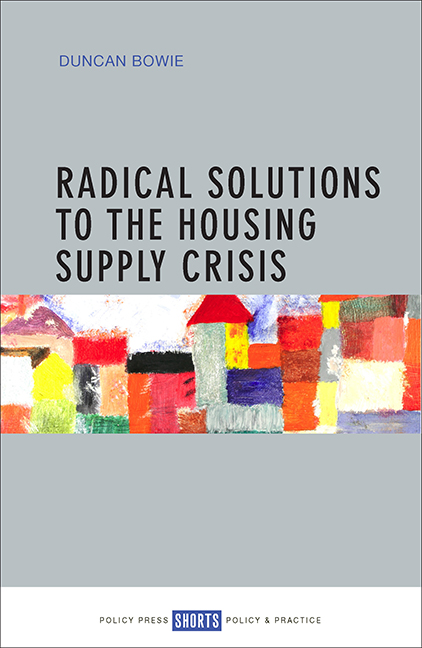9 - A radical programme for reform
Published online by Cambridge University Press: 05 April 2022
Summary
This concluding section starts with a discussion on some key policy issues. It will then seek to establish principles for a new housing policy and planning policy relating to housing supply before setting out a specific reform programme.
Forms of investment: bricks or benefits?
This is a critical issue for any government to consider – whether subsidies to provide affordable housing should be in the form of investment in the provision of new homes so that they can be let at relatively low rents – bricks and mortar subsidy – or whether subsidies should be in the form of revenue payments to households to rent market homes that would otherwise be unaffordable at their prevailing levels of income. It is now logical for a government to again provide significant investment subsidies rather than rely on revenue subsidies because the government can set the terms on which grant-funded property is occupied, including ensuring continuing occupation by households in housing need, and can ensure that such homes are available for future generations. As the value of a property increases, it becomes a public asset against which further borrowing can be raised. The case for a rebalancing of investment subsidies and revenue subsidies has been set out in two recent reports – SHELTER's (2012) Bricks or benefits? and the Institute for Public Policy Research's (IPPR’s) Together at home (Hull, 2012). A huge advantage of subsidising the (publicly owned) bricks would be that the subsidy does not leak away as a de facto subsidy to landlords, which is the effective role of housing benefit and housing allowance payments. A significant increase in the supply of social rented housing could help to reduce rent inflation in the private rented sector.
Socialising the private rented sector
While we have increasingly privatised the social housing sector, we have failed to socialise the private rented sector. The private rented sector is, in effect, deregulated. There are no rent controls and no minimum security of tenure, and statutory regulation of minimum standards is limited to houses in multiple occupation, and, in practice, largely ineffective. Yet, with the homeownership sector shrinking and social housing stock continuing to decline, the private rented sector is booming, with the bottom end of the sector fuelled by housing benefit.
- Type
- Chapter
- Information
- Radical Solutions to the Housing Supply Crisis , pp. 121 - 166Publisher: Bristol University PressPrint publication year: 2017



